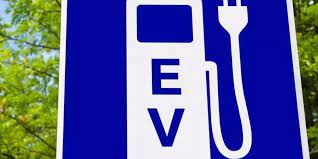NEW DELHI, July 28: Electric lifecycle management start-up Welectric on Wednesday announced its foray into the electric vehicles aftermarket business.
With the new vertical, the company plans to provide doorstep focused annual maintenance solutions for electric two-wheelers (e2W), starting with business-to-business (B2B) clients, Welectric said in a statement.
The company said it has hired former Bounce executive Munish Kumar to lead the business.
Welectric said it will focus on solving the financing, maintenance and aftermarket challenges of the e2W industry. It will expand its offering to individual consumers as well and build a digital multi-brand one-stop shop for all electric two-wheeler requirements.
“India is at the tipping point of commercial adoption of electric 2Ws, and I believe the entire two-wheeler industry is going to transition completely to electric within the next 10 years,” Welectric Founder and CEO Vikas Jain said.
This transition is not just about the vehicle technology changing from internal combustion to electric. The entire distribution and aftermarket ecosystem has to transition from fragmented and real estate heavy to digital and organised, he added.
Jain said Kumar’s joining will help to define and establish a new-age digital and doorstep focused maintenance and aftermarket ecosystem for all brands of e2Ws.
Kumar comes with over a decade of automotive experience. He was previously heading the Repairs & Maintenance Operations for Bounce in Bangalore, the statement said.
Welectric said it is working with original equipment manufacturers (OEMs) such as Hero Electric, Ampere and Okinawa to offer their e2Ws on operating lease to institutional clients.
“The company aims to enable one million electric 2Ws within the next 5 years and aims to build a circular economy of these EV,” it added.
Bullish on the e2Ws market, the company said e-commerce, grocery and food delivery companies are seeing their delivery volumes go up significantly compared to pre-covid levels and this trend is expected to continue irrespective of how soon the pandemic threat is over.
“The persistent increase in fuel prices as well as hike in subsidies for EVs has made using petrol 2Ws prohibitively expensive for last mile deliveries and therefore e2Ws are now not just an alternative but the only sustainable option,” it added. (PTI)
Trending Now
E-Paper


